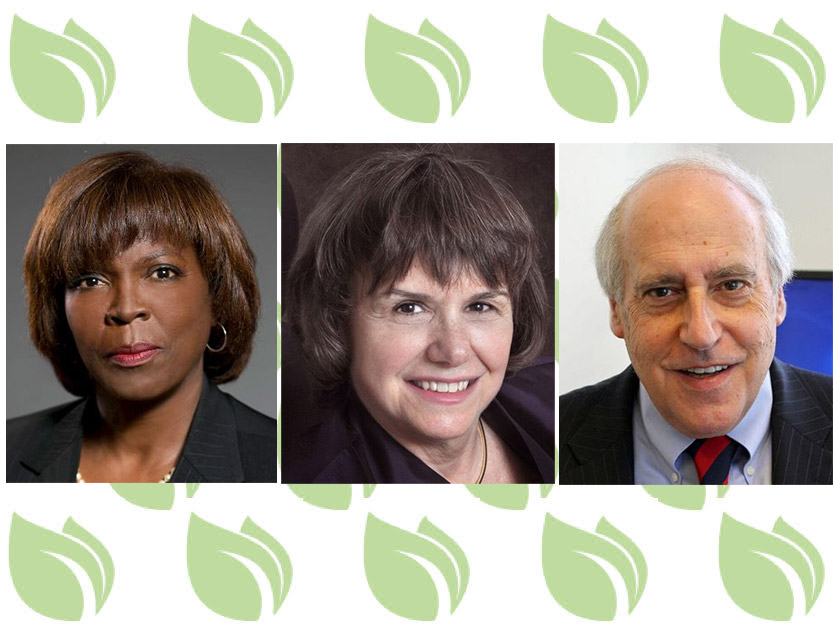Editor’s Note: Agri-Pulse and The Chicago Council on Global Affairs are teaming up to host a monthly column to explore how the U.S. agriculture and food sector can maintain its competitive edge and advance food security in an increasingly integrated and dynamic world.
The international community shone a spotlight on food and agriculture in 2021, made bright with big promises and financial commitments. At the United Nations Food Systems Summit (UNFSS), COP26 climate change summit, and Nutrition for Growth Summit (N4G)—all in the last three months of the year—the United States federal government pledged over $30 billion in total to end hunger and save the planet. These commitments were clear signals of good intentions. Yet the very structure of these global convenings could get in the way of meaningful progress on their laudable goals. Agriculture was largely sidelined at COP26, despite food systems’ impact on and risk from climate change. N4G focused in on an important aspect of food systems and saw an increase in US funding, but US commitments at the summit will not serve to fully integrate nutrition into food systems policy.
Agriculture, nutrition, and climate change have been siloed for years in policy and practice. Despite efforts over the past two decades or so to move mainstream conversations from “agriculture” to “food systems,” and in doing so integrate questions of nutrition, climate, and justice into food policy, the shift has remained largely one of vocabulary. The almost complete exclusion of food systems at COP26 is a prime example of this. The United States’ food, nutrition, and climate change pledges are a unique opportunity to break down these barriers and take a wholly new approach to solving domestic and global hunger in a way that benefits people and the planet.
Climate change, agriculture, and nutrition are inextricably linked. Agriculture is fundamentally dependent on the environment, and global food security is already suffering the consequences of the changing climate. Evidence shows that, in addition to temperature and precipitation changes negatively affecting global crop yields, climate change is reducing the nutritional content of key crops like rice and wheat. Left unmitigated, climate change will push an additional 78 million people into chronic hunger. Somewhat paradoxically, food systems contribute over one-third of the world’s greenhouse gas emissions, a core contributor to climate change. Given how completely enmeshed the issues of food, nutrition, and climate are, they must be addressed through interdisciplinary, innovative approaches.
It is time for new investment and new approaches. This is an all-hands-on-deck situation in the midst of a pandemic that has pushed every community, system, and sector to its limits. Recognizing the unprecedented opportunity presented by UNFSS as well as the urgency at hand, the Chicago Council on Global Affairs convened a multisectoral expert roundtable in October 2021 to identify concrete steps to turn big promises into even bigger action. The insights generated in this meeting have been distilled into two white papers that offer recommendations for communities, civil society, donors, the private sector, academia, and the government to make progress on food, nutrition, and climate goals simultaneously.
Inaction, or uncoordinated action, on these issues will be costly—in terms of human life as well as monetarily. Already, diet-related conditions are entirely preventable causes of over half of US deaths. Pre-pandemic, poor diet was associated with 20 percent of deaths globally. To make matters worse, diet-related conditions put people at much higher risk of mortality from COVID-19. Malnutrition is expensive in terms of human potential as well. A lifetime of innovation, creativity, and productivity is at stake for the 28 percent of children under five suffering from stunting and wasting around the world. Adding to these incalculable losses of human life and potential, climate change comes with a hefty cost as well—as much as 14 percent of global economic output by 2050.
These papers recommend an overarching, integrated policy approach to nutrition, agriculture, and climate change; to continue without will slow progress on all three. A whole-of-government approach that establishes shared baselines, metrics, and data collection practices will be critical to reaching climate and nutrition goals. Connecting policy goals to the community level is important, as well. Federal and state nutrition programs should increase partnerships with municipalities, tribes, and community-based nonprofit organizations to make nutritious foods financially and physically accessible, convenient, and culturally appropriate. At the same time, these programs, along with federal and state institutions, present an opportunity to prioritize low-carbon, nutrient-rich local and regional sourcing. Now is the time for build bridges and form urban/rural coalitions that elevate nutrition and the food systems agenda into climate change policy, while providing leadership opportunities for the next generation of citizens and farmers—those who will inherit the consequences of failed promises.
The potential for transformative, interdisciplinary and multisectoral action has never been greater. The stakes have never been higher.
Ertharin Cousin is a distinguished fellow for global food and agriculture with the Chicago Council on Global Affairs. Cousin possesses more than 30 years of national and international nonprofit, government, and corporate leadership experience. In government, she served as the US ambassador to the UN Agencies for Food and Agriculture in Rome and from 2012 to 2017 she served as executive director of the World Food Programme. Prior to her global hunger work, Cousin helped lead the US domestic fight to end hunger while serving as executive vice president and chief operating officer of America's Second Harvest (now Feeding America).
Catherine Bertini is a distinguished fellow for global food and agriculture with the Chicago Council on Global Affairs. Bertini spent 10 years as an executive director of the United Nations World Food Program, the world's largest international humanitarian agency. She became the 2003 World Food Prize laureate for her groundbreaking leadership there. Bertini was UN Under Secretary General for Management and the UN Security Coordinator. She led the US domestic nutrition programs as USDA assistant secretary for food and consumer services and the nation’s assistance program for single mothers at HHS. She is chair of the board of the Global Alliance for Improved Nutrition (GAIN).
Dan Glickman is a distinguished fellow for the center on global food and agriculture with the Chicago Council on Global Affairs. Glickman served as the US Secretary of Agriculture in the Clinton administration. After serving 18 years in the US House of Representatives representing the 4th Congressional District of Kansas. Now, he is a senior counselor and chair of the International Advisory Board at APCO Worldwide; senior advisor to the US Global Leadership Coalition; and a long-time board member and now lead director of the Chicago Mercantile Exchange (CME Group). In addition to his work at the Council, he serves as an adjunct professor at Tufts University's Friedman School of Nutrition Science and Policy in Boston; a senior fellow at the Bipartisan Policy Center; and a strategic advisor and counselor at The Russell Group.
For more opinions and ag news, visit www.Agri-Pulse.com.




